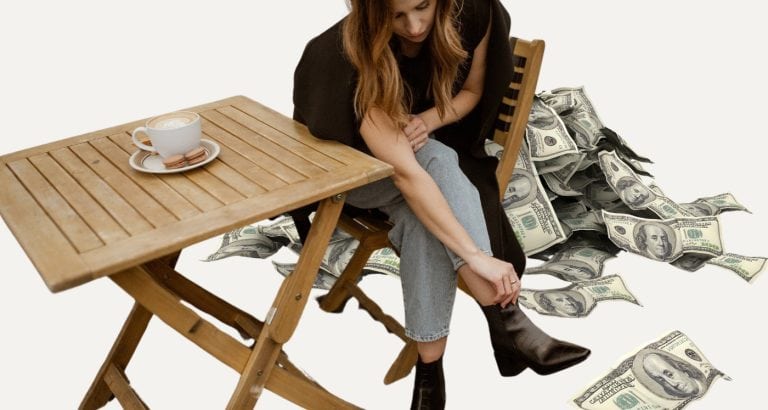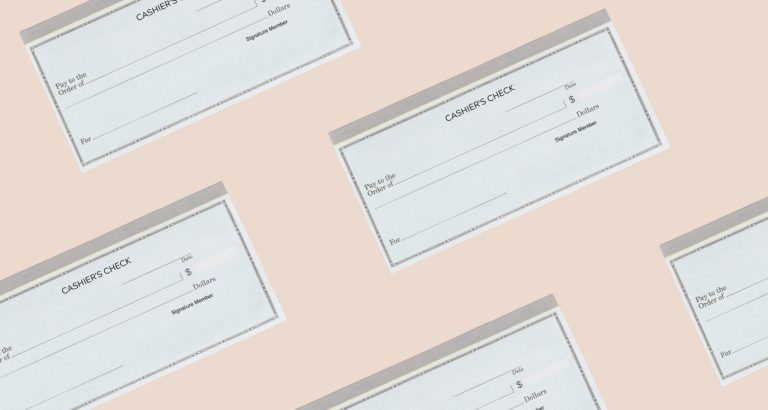How Much Can You Write a Check For? Is There a Limit?
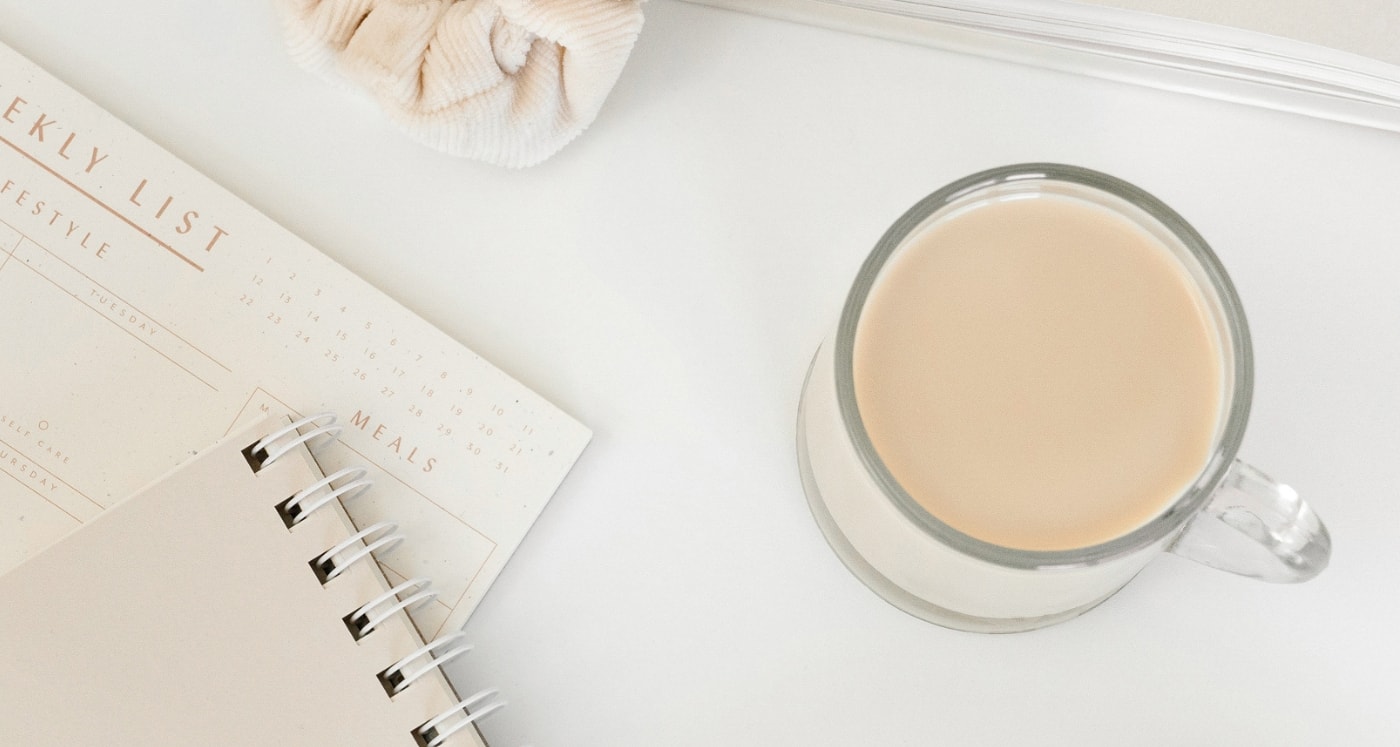
Do you need to write a large check? Or perhaps you want to give money to someone as a gift, and you’re wondering, how much can you write a check for?
Is there any type of limit on how much money a personal check can be written for? To answer the big question you’re asking right away, how much can you write a check for? There isn’t really a limit on this.
As an affiliate partner of various brands and sponsored content, HerPaperRoute may earn commission on qualifying purchases. Disclaimer
You can write a check for as much as you want, provided you have the money available in your account. As long as you have the funds, feel free to write your check for any amount.
How Much Can You Write a Check For?
Sometimes life costs money. You may find that a big amount of cash is required for something.
Whether it’s for a house remodel, a pool, or a vacation, you might need to write a very large check at some point. It’s nice to know about restrictions and requirements first.
For personal checks, no amount is too large. What you should be aware of is if the receiver has limits on how much money they can accept.
Besides this and having enough money in your account, you can write a check for $2000 or $20,000 if you need to.
So to recap, as long as you have the money in your account and the receiver can accept the amount, you’re good to go. Be sure to fill out the check entirely and give it directly to the recipient to avoid any check cashing problems and prevent the check from being lost.
Can I Write a Personal Check for $50,000?
Being able to write a check this significant is a dream for many. If you’ve got the necessary funds in your bank account, you can write a check for this amount.
As a side note, what would you do with a check for $50,000? After all, you could pay for an entire college education, put a down payment on a house, or something else equally amazing.
As you work towards your dreams, it may help to keep a situation like this in your mind. With hard work and commitment, someday, you may be able to write a $50,000 check.
How much can you write a personal check for without being taxed?
Taxes can really rain on your parade sometimes, but they are necessary and part of dealing with money. So if you write a personal check, suppose as a gift for someone, how large of an amount can it be without being taxed?
According to the IRS, if you give someone a check as a gift, you can give up to $16,000 a year tax-free per person as of 2022. If you happen to go beyond this amount, taxes apply.
Although this is quite a large amount, so you may not need to worry about this too much, as going over this number is somewhat unlikely.
Are large personal checks reported to IRS?
When handling large amounts of money, taxes enter into the equation, and you may have some questions. Do large personal checks get reported to the IRS? Typically, no, unless they are from a foreign source.
However, if someone writes you a check over $10,000 and you deposit it, that will get reported to the IRS, as well as withdrawals over $10,000.
If you’re under this amount, it likely won’t be reported. If you have a cash transaction over $10,000, you probably need to fill out some paperwork for the IRS.
These laws can change at any time so it’s best to check the IRS website for the most up-to-date information.
Will a bank cash a $20,000 check?
Your bank will cash any amount of money for a check you’d like. But you need to know about a few things that can happen.
First, they may not have the cash on hand right away for substantial amounts like this. Be prepared that it could take some time to get the funds.
Second, you should show up in person for this. Go to the credit union or bank that issued the check, and cash it there. Know that amounts over $10,000 are reported to the IRS.
And last, it doesn’t hurt to check with your bank about their policies. Let them know that you’ll be coming in to cash a hefty $20,000 check and ask what to expect and their rules.
That way, you’ll know and cut down on any problems or inconveniences when it comes time to cash it.
What’s the biggest check you can cash?
There’s usually no limit to how big of a check you can cash. Obviously, the things I’ve mentioned, making sure you have the funds and reports to the IRS over $10,000 – still apply. But you should be able to cash your check for as much as you’d like.
Here are a couple of things to keep in mind when cashing large checks. First, check with the financial institution. Let the bank know you’ll be cashing a large check and see if there’s anything you need to be aware of.
Sometimes banks may not have the funds for a large check at the bank right away, so notify them. It may take some time to get the money.
And next, there may be a fee when cashing a large check. Usually, your own bank isn’t going to charge you, but depending on where you cash the check, it might cost some money. Check out this chart for non-customer check-cashing fees at well-known banks.
Are there alternatives to writing a large personal check?
Writing a large personal check might not sound like a great idea to you. Maybe you’re thinking about what you can do instead of this.
There are a couple of options when you need to get money to someone but don’t want to write a personal check.
- Money order. A money order is a bit more secure option when writing a large personal check. It ensures that only the intended person can cash the check.
- Cashier’s check. A cashier’s check is a very safe option because the bank guarantees that the money can be deposited. Cashier’s checks are a good option for large amounts of money because it offers extra assurance of funds.
How to Plan for a Large Amount of Money
You can write and cash checks for huge amounts! While this may not be necessary for your everyday life, it’s good to be prepared if you need to handle a large amount of money. What do you do when faced with this type of situation?
When you deposit the money into your account
If you are the one depositing a large amount of money, that’s great news! But the danger is that many people will be inclined to spend this amount without a real plan.
Here’s what to do instead:
- Leave the money in your account for a few days. If at all possible, when you deposit a considerable amount of money in your account, leave it alone for a couple of days. This will give you a chance to let impulse spending and feelings of excitement subside so you can think clearly about what to do with the cash.
- Make a list of what you could use it for. Write down every possible way you could spend the money. Don’t leave out anything! It can be frivolous or essential; just write it all down.
- Decide how to spend the money. Look at your list and decide what makes the most sense to spend the money on based on your finances and what you can afford. Some responsible ways to use it might be paying off debt, creating an emergency savings fund, investing, or paying for education or bills.
- Make a budget. After you decide what the most important way to spend the money is, it’s time to create a budget. Divide up the cash into categories if there are several things you’ll be using it for. Make everything organized, so you know where every penny will go.
- Work your money plan. After you’ve decided how to spend the money and created a budget, you can put your plan into action. Send the funds to accounts or investments, save them, or spend them on what you need.
When you withdraw the money from your account
You need to be prepared when you withdraw the money because you’re writing the check to someone else.
First, ensure you have the necessary funds to cover this check withdrawal before you write it. Then, wait for the money to withdraw from your account.
It may take time, but don’t forget that the money will be coming out of the account. Otherwise, you risk re-budgeting it, and then the money withdraws.
Last, make sure you have money still left in your account. After the check withdraws, you should still have funds in your account. It’s vital to help you not overdraft and stick to your own budget.
Before writing a large personal check, check with the receiver and the financial institutions involved.
It’s okay to write a sizeable personal check but check with the person receiving it first. They need to be okay with a personal check as a payment method.
Be sure they don’t prefer a money order or cashier’s check. And next, know the rules of the banks involved with the check in advance.
It’s better to not have any surprises and know exactly how things will go when you write a large personal check.
Related Articles:
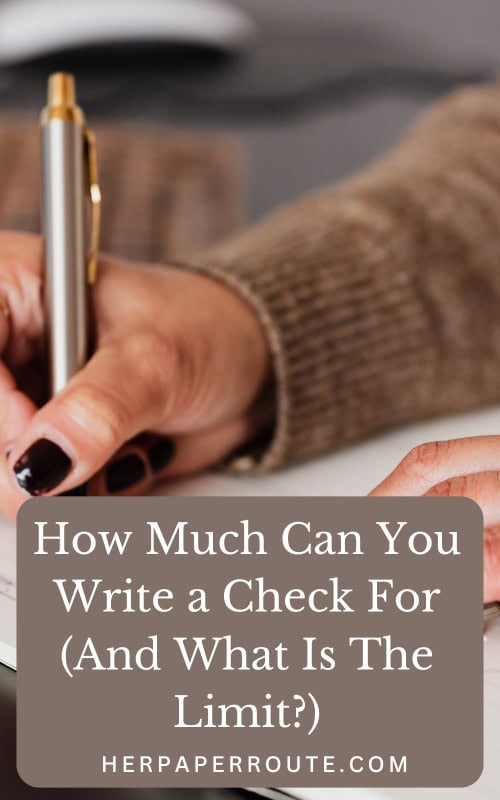
Follow along on Instagram!


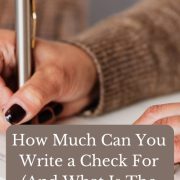



![Your Life After Mortgage is Paid Off [What to do and What Changes] 7 happy woman who just paid off her mortgage explains what Your Life After Mortgage is Paid Off can be like and what to expect](https://herpaperroute.com/wp-content/uploads/2021/11/Your-Life-After-Mortgage-is-Paid-Off-768x410.jpeg)
